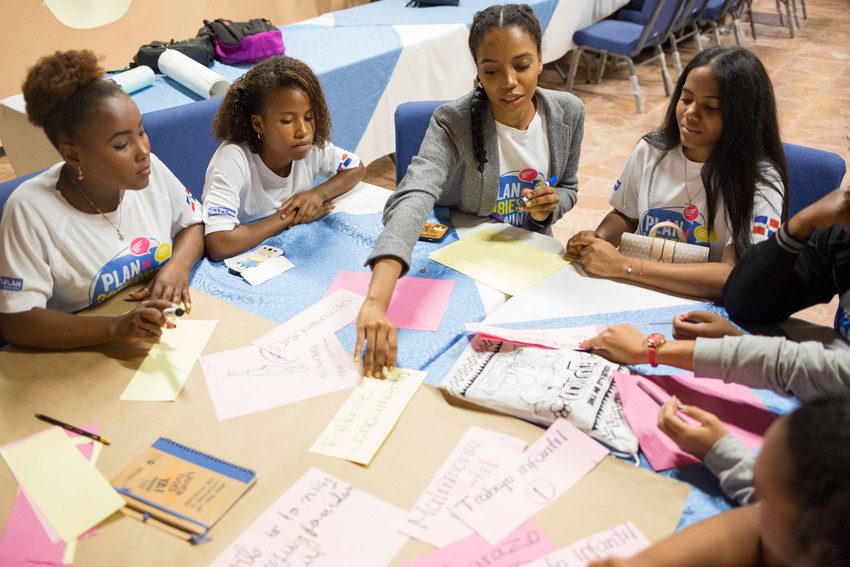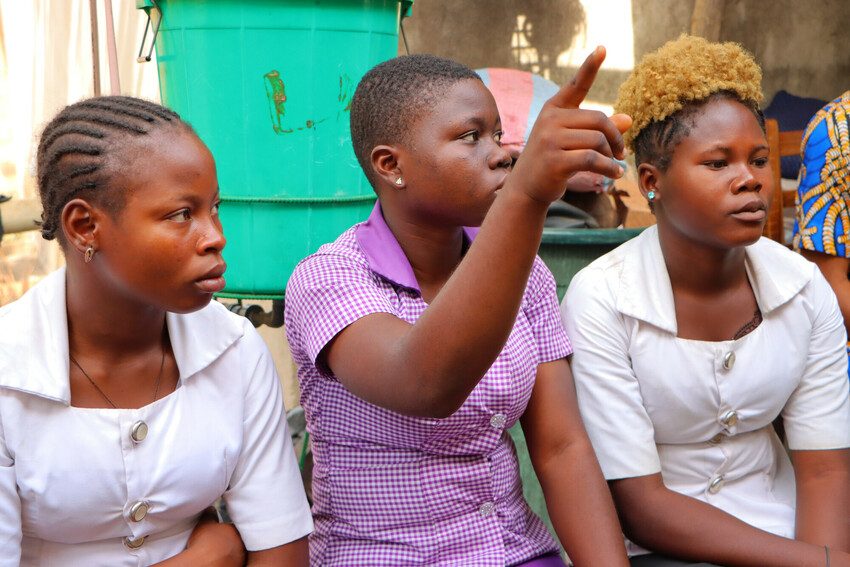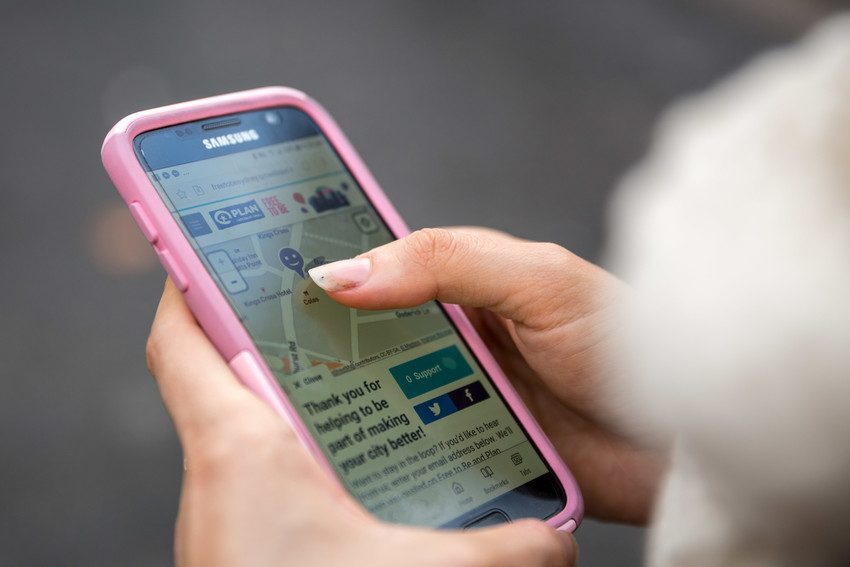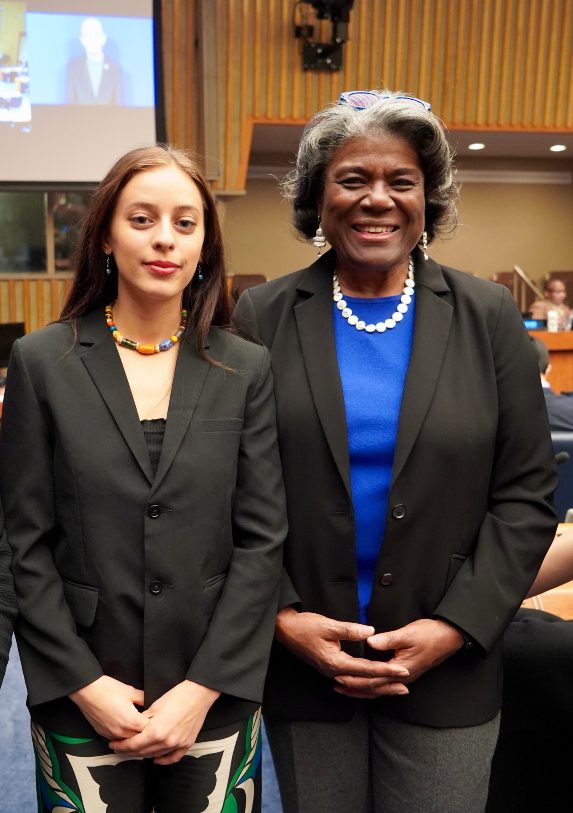Annual Evidence Snapshots of Impact 2025
Take a look at this series of snapshots from 2025 to see the insights from our evidence and what we can learn from it.
Impact Evidence is a crucial component of Plan International’s Global Strategy, “All Girls Standing Strong Creating Global Change.”

By integrating evidence into all stages of our work, we aim to ensure that all our initiatives are grounded in robust and credible studies and analysis. We produce this evidence in a number of ways:
Improving Results and Accountability to Project Participants and Communities: By basing decisions on solid evidence, Plan International is better positioned to improve project and programme outcomes. This evidence-driven approach fosters accountability to the communities we work for, ensuring that the needs and aspirations of the people we work with is at the forefront of our work.
Impact and Influence through Advocacy & Influencing: By demonstrating real-world impact of key issues for women and girls through data and stories. Plan International aims to provide decision-makers with the information they need to make informed choices that can lead to effective and impactful policy actions for girls and young women.
Enhancing Programme Quality and Design: Utilising evidence supports the refinement of programme and project design. It enables us to tailor interventions based on real insights, leading to more effective and relevant initiatives.
Strengthening Accountability to Donors and Sponsors: Evidence-based decision-making ensures the more efficient use of resources in our programming and influencing work.
Continuous Learning: Embracing evidence as a core part of our strategy encourages a culture of continuous learning within Plan International. It allows adaptation and evolvement based on insights from both successes and challenges.
Recognising the importance of our role in supporting and amplifying the lived realities of those who we work with, we are also committed to participatory research and co-creation with girls and young women.
Overall, Plan International’s commitment to impact evidence reflects a comprehensive and strategic approach to achieving our goal of the advancement of gender equality and the well-being of girls and young women everywhere.

We have used evidence from our longitudinal Real Choices, Real Lives (RCRL) to directly inform a community intervention programme in Benin.
Previous RCRL research focusing on sexual and reproductive health and rights (SRHR) in adolescence recommended more be done to generate healthy intergenerational dialogues between girls and their caregivers around SRHR.
Given these recommendations, we have designed and broadcast a series of short radio programmes in two communities in Benin. These shows depict healthy dialogues on SRHR, with the aim of normalising discussion of sexual health and wellbeing between girls and their caregivers.
The stories are loosely based on the real experiences of RCRL girls, and follow scripts written by other young people in the community.
In 2018, the State of the World’s Girls Unsafe in the City report revealed relentless sexual harassment and abuse for girls across Delhi, Kampala, Lima, Madrid and Sydney. The research was gathered via the Free to Be app, which allows girls to report incidents of abuse and seek emergency assistance should they need it.
As a result of this research, Plan International Youth Activists in Australia worked with the Greater Sydney Commission, NSW transport authorities, and other organisations to implement girls’ recommendations. Transport for NSW also announced the ‘Safety After Dark’ Innovation Challenge to find new and effective ways to combat the problem of harassment on public transport – after our research showed that the majority of harassment and abuse happens on and around public transport.


Our Free to Be Online and the Truth Gap research have been read and used by the United States Government in their policy making on safety and dis- and mis-information online.
Plan International presented the findings to senior staff at the White House, including the Special Advisor on Gender Equality to President Biden. The US Government then launched the Global Partnership for Action on Gender-based Online Harassment and Abuse, together with the governments of Australia, Denmark, Republic of Korea, Sweden and the UK.
Plan’s findings and youth voices have since been cited in several United States Government policies and public announcements.
Pictured is US youth advocate Luna (left) with US UN Ambassador Linda Thomas-Greenfield. Luna’s advocacy led to the Commission on the Status of Women to adopt language recognising the specific priorities and perspectives of adolescent girls for the first time.
Are you looking to learn more about how you can generate and use evidence of your impact in your organisation or teams?
Plan International’s External Monitoring and Evaluation (M&E) Technical Strengthening Training Programme is designed for everyone working in the humanitarian and development sectors, no matter their knowledge and expertise of M&E, and covers concepts and definitions aligned with the sectors and their key stakeholders.